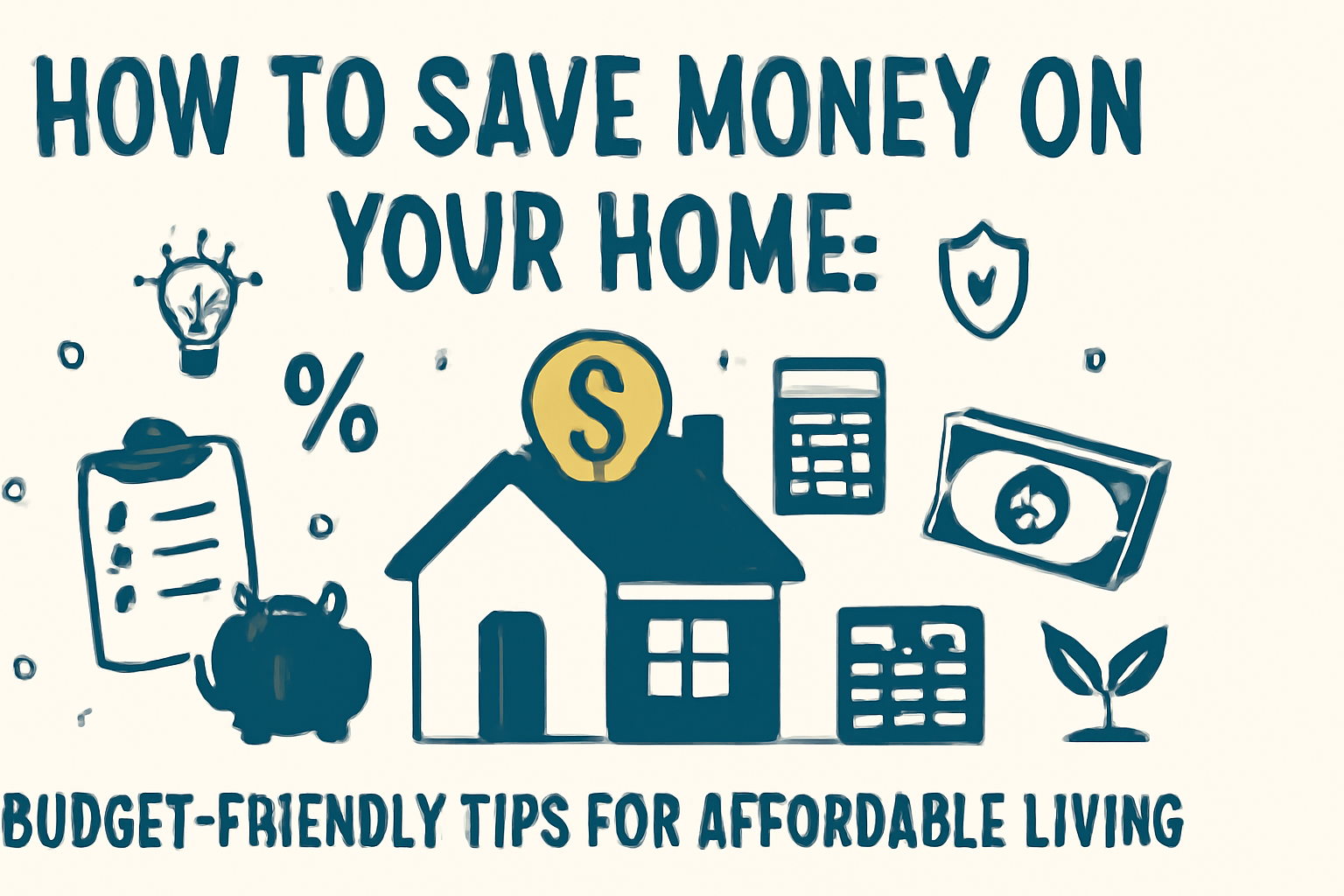Owning or renting a home can come with a variety of expenses, from rent or mortgage payments to utilities and maintenance costs. However, there are several ways to save money on your home and make your living space more affordable. By adopting a few smart strategies, you can reduce your monthly expenses and still enjoy a comfortable living environment. Here are some budget-friendly tips for saving money on your home.
1. Consolidate or Refinance Your Mortgage
If you own your home, one of the most significant expenses is your mortgage. If mortgage rates have dropped since you first bought your home or your financial situation has improved, refinancing could be a smart way to save money on your monthly payments.
Refinancing allows you to secure a lower interest rate or extend the term of your loan to reduce your monthly payments. Even a small decrease in your mortgage rate can lead to significant savings over the life of your loan. Make sure to compare offers from different lenders and calculate the potential long-term savings before refinancing.
2. Cut Energy Costs with Energy-Efficient Upgrades
Energy costs can take up a significant portion of your monthly bills, but there are plenty of ways to make your home more energy-efficient and reduce your utility expenses. Start by upgrading to energy-efficient appliances, such as LED light bulbs, low-flow showerheads, and energy-efficient HVAC systems.
You can also improve insulation in your home to prevent heat from escaping in the winter or cool air from escaping in the summer. Sealing gaps in doors and windows, using weather stripping, and adding insulation in attics and walls can all help you lower your energy costs. Consider installing a programmable thermostat to better control your heating and cooling usage.
3. Review and Reduce Your Utility Bills
Take a close look at your utility bills—such as electricity, water, and gas—and find ways to reduce them. Simple actions like turning off lights when you leave a room, unplugging electronics when not in use, and using natural light during the day can lower your electricity bill.
For your water bill, consider installing low-flow faucets, showerheads, and toilets to reduce water consumption. Also, check for leaks and fix them promptly, as even a small drip can lead to higher water bills over time.
4. Shop Around for Better Insurance Rates
Home insurance is an essential but often costly expense. To save money, regularly review your insurance policy and shop around for the best rates. Compare quotes from different insurers to find the best deal that provides the coverage you need.
If you’ve made improvements to your home, such as adding a security system or upgrading the plumbing, make sure to inform your insurance provider. These updates can sometimes result in lower premiums. Additionally, consider bundling your home insurance with other policies, like auto insurance, to take advantage of discounts.
5. Maintain Your Home to Avoid Costly Repairs
Regular maintenance can prevent minor issues from becoming major (and expensive) repairs. Take care of routine tasks like cleaning gutters, inspecting the roof for leaks, and checking for plumbing issues. The earlier you catch a problem, the less it will cost to fix.
If you’re comfortable with DIY repairs, you can tackle minor issues yourself, such as fixing a leaky faucet, painting walls, or cleaning your dryer vent. Not only will this save you money on professional services, but it will also help keep your home in great condition for years to come.
6. Limit Unnecessary Purchases for Your Home
When it comes to home decor and furniture, it’s easy to get caught up in buying items you don’t necessarily need. Instead of constantly upgrading your furniture or decor, focus on making small changes that refresh your space without breaking the bank.
For example, you can update your home’s look with inexpensive accessories like new throw pillows, curtains, or rugs. Repurposing or upcycling old furniture is another great way to save money while giving your home a fresh look. Consider swapping out old hardware on cabinets or repainting furniture to make it look brand new.
7. Rent Out Extra Space
If you have extra space in your home, consider renting it out to generate some additional income. Renting out a spare room, basement, or garage can help you offset your monthly mortgage or rent payments. Many people rent out rooms on platforms like Airbnb, and it can be a great way to make money without much effort.
Before renting out space, be sure to check local regulations and discuss terms with your potential tenants. Renting out extra space can be a smart way to save money on your home while utilizing the space you already have.
8. Reduce Home Improvement Costs by Doing It Yourself
Home improvement projects can be expensive, but there are many tasks you can do yourself to save money on labor costs. From painting walls to installing shelves or building furniture, DIY projects can be a great way to update your home without spending a lot of money.
Before starting a project, research tutorials and guides online to ensure you have the necessary skills and tools to complete it successfully. Even if you don’t have experience with home improvement, many tasks are easier than they seem and can be done with a little patience and effort.
9. Downsize or Reorganize Your Space
If you’re looking for ways to save money on your home, downsizing your living space or reorganizing your home can help reduce your living expenses. For example, if you have more space than you need, consider moving to a smaller, more affordable home. Alternatively, reorganizing your current space can make it feel larger and more efficient, which could save you money on furniture or decor.
If you’re renting, downsizing your apartment or moving to a more affordable area can reduce your rent and utility costs. For homeowners, downsizing may mean selling a large home and purchasing a smaller, more manageable property.
Owning or renting a home doesn’t have to be expensive, and with a few smart strategies, you can reduce your housing costs and still enjoy a comfortable living space. From refinancing your mortgage to cutting energy costs, there are plenty of ways to save money on your home while maintaining its functionality and appeal.
By regularly maintaining your home, shopping around for insurance, and being mindful of unnecessary purchases, you can create a budget-friendly living environment that allows you to save money for other important areas of your life.




